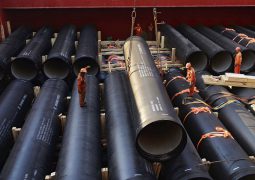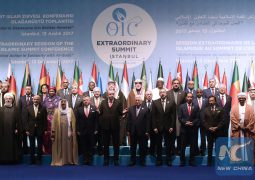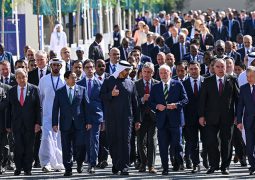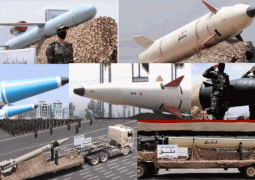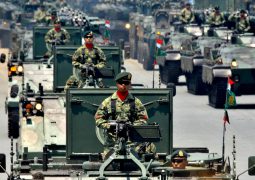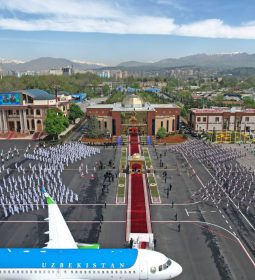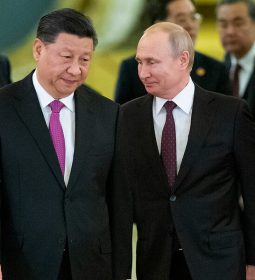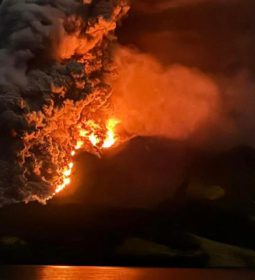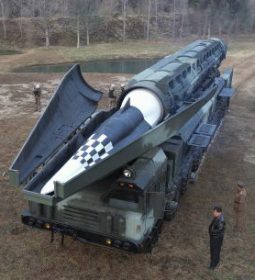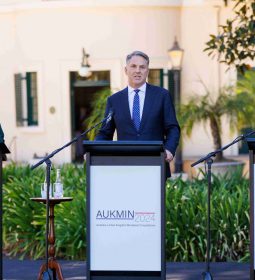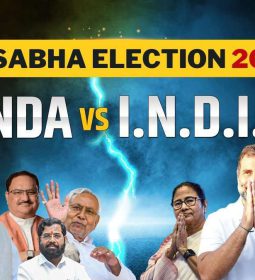10,000 Iranians in M’sia take part in Islamic Republic’s presidential election

KUALA LUMPUR: Some 10,000 Iranians – out of 60,000 living in Malaysia – participated in their country’s 12th presidential election yesterday.
The Iranian expatriates, who joined their 55 million countrymen in picking the Islamic Republic’s next leader, cast their votes at six polling stations across the country: four in Kuala Lumpur, one in Johor Baru and one in Penang.
An officer in-charge of the Consular Section of the Iranian Embassy, who declined to be named, said about 10,000 of the estimated 60,000 Iranians here were eligible to vote.
The polling stations opened as early as 8am and closed at around 6 pm.
“As you can see, people have been lining up since morning, waiting for their turn. It pretty much tells us that Iranians here, back in the country, as well as in other parts of the world, believe in the concept of democracy, where we can choose our own leaders regardless of their political affiliation,” he said yesterday.
Once the polling stations closed, the process of counting was done immediately, and the total tally was sent to Iran to be rounded up for the final results.
For this presidential election, the incumbent reformist president Hassan Rouhani, deemed as a moderate cleric, is facing Ebrahim Raisi, a hardliner conservative. Two other candidates are also in the race.
Jafar, 39, an Iranian PhD student from Universiti Teknologi Malaysia (UTM), said that it is crucial for the soon-to-be-elected government to shape better policies on economic and social development.
“Iran is a great country but it can only be better with the right governance. We need good policies to spur the growth of the economy, reduce the unemployment rate and strengthen ties with other countries.
Mohmedi, a 29-year-old student who has lived here with his parents for five years, said he hopes that Iran could one day open up to the world.
“We have been unfairly treated with all these unjust views that our country is being controlled by a dictator. The administration might be different compared to other countries that practise full democracy. But we still have a say in choosing our leaders, and others should respect that” he said. – BERNAMA
TEHRAN: Iranian President Hassan Rouhani won a resounding re-election victory on Saturday as voters backed his efforts to rebuild foreign ties and kick-start the struggling economy.
Interior Minister Abdolreza Rahmani Fazli confirmed the result on state television, saying Rouhani had won 23.5 million votes – 57 per cent – compared to 15.8 million – 38.3 per cent — for hardline challenger Ebrahim Raisi.
It followed a huge 73 per cent turnout on Friday which forced authorities to extend polling by several hours.
“I congratulate the great victory of the Iranian nation in creating a huge and memorable epic in the continuation of the path of ‘wisdom and hope’,” tweeted Vice President Eshaq Jahangiri, referring to the government’s slogan.
Rouhani, a 68-year-old moderate cleric who spearheaded a 2015 nuclear deal with world powers, framed the election as a choice between greater civil liberties and “extremism”.
Hardline cleric Raisi, 56, had positioned himself as a defender of the poor and called for a much tougher line with the West.
But his revolutionary rhetoric and efforts to win over working class voters with promises of increased handouts gained limited traction.
“Rouhani’s vote, particularly in rural areas, shows that Iranian people no longer believe in economic populism and radical change,” said Ali Vaez, Iran analyst for the International Crisis Group, a think tank.
“They have the maturity to understand that the solution to their country’s predicaments is in competent management of the economy and moderation in international relations,” Vaez told AFP.
Rouhani’s central first-term achievement was a deal with six powers led by the United States that eased crippling economic sanctions in exchange for curbs on Iran’s nuclear programme.
He gained a reprieve this week when Washington agreed to continue waiving nuclear-related sanctions, keeping the deal on track for now.
But the election comes at a tense moment in relations with the United States, with President Donald Trump still threatening to abandon the accord and visiting Iran’s bitter regional rival Saudi Arabia this weekend.
Although Rouhani has been deeply entrenched in Iran’s security establishment since the early days of the revolution, he has emerged as the standard-bearer for reformists after their movement was decimated in the wake of mass protests in 2009.
“We’ve entered this election to tell those practising violence and extremism that your era is over,” he said during the campaign.
At recent rallies, his supporters chanted the names of reformist leaders under house arrest since 2011 for their part in the protests.
International affairs researcher Foad Izadi, of Tehran University, said Rouhani may now have the leverage to push for more freedoms, despite opposition from the conservative-dominated judiciary and security services.
“A number of years have passed (since the 2009 protests) and the country is demonstrating a high level of stability – this gives the system confidence, which means more room for change,” Izadi said.
But the economy remains the number one challenge.
Although Rouhani brought inflation down from around 40 per cent when he took office in 2013, prices are still rising at nine per cent a year.
Oil sales have rebounded since the nuclear deal took effect in Jan last year, but growth in the rest of the economy has been limited, leaving unemployment at 12.5 per cent overall, and at almost 30 per cent among young people.
“We are still not pleased with the situation, but in the four years of Rouhani there has been a relative improvement and I’m voting to keep that,” said Alireza Nikpour, a 40-year-old photographer in Tehran, as he queued to cast his ballot on Friday.
Last month, the Guardian Council excluded all but six candidates for the election but still left a stark choice between moderate-reformists and hardliners.
Two dropped out to back Raisi and Rouhani, respectively, while the remaining candidates – reformist Mostafa Hashemitaba and conservative Mostafa Mirsalim – won only a marginal percentage of the votes. – AFP
- Previous About 400,000 people fell for JJPTR investment scheme
- Next Dumped by Trump, Remaining TPP Nations Vow to Forge Ahead



